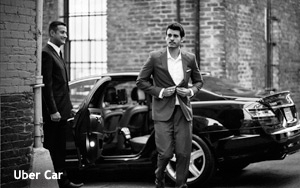automotive
Uber, ZipCar Seen As No Threat To Vehicle Sales
- by Tanya Gazdik , March 15, 2016
 Ride- and car-sharing is
not an imminent threat to new-car buying and vehicle ownership, despite the growing number of services being offered to consumers, according to Kelley Blue Book.
Ride- and car-sharing is
not an imminent threat to new-car buying and vehicle ownership, despite the growing number of services being offered to consumers, according to Kelley Blue Book.
The 2016 Kelley Blue Book Ride Sharing/Car Sharing Study was conducted by Vital Findings to understand the motivations behind ride sharing and car sharing, as well as opinions and behaviors surrounding current and future transportation.
The survey found that these sharing platforms primarily are used as substitutes for taxis and traditional rental car companies, and have very limited impact on current or future vehicle ownership. In fact, the expected transportation method of the majority of Americans who currently owns or has access to a vehicle (74%) is to drive themselves in the next six months.
“Automakers clearly want to be ahead of any movement away from personal car ownership, which is why so many of them are exploring or investing in these business models, but it appears they have little to worry about, at least in the near-to-medium term,” Karl Brauer, senior analyst for Kelley Blue Book, tells Marketing Daily.
advertisement
advertisement
When asked what statements about owning or leasing a vehicle respondents agree with, 80% completely or somewhat agreed that owning or leasing a vehicle provides a sense of freedom and independence, followed by 62% who completely or somewhat agreed that owning or leasing a vehicle gives you a sense of pride/success.
Ride-sharing services, including Uber and Lyft, among others, use a smartphone app for consumers to request and pay for a ride on demand from drivers who typically own the cars they drive. On the other hand, car-sharing companies -- such as Getaround, ZipCar and Car2Go, among others -- provide consumers with the opportunity to borrow vehicles and drive themselves, using a smartphone app to schedule, unlock and pay for borrowed vehicles.
Awareness of the services doesn’t mean use. Nearly three-quarters of respondents (73%) are aware of ride sharing, but only 16% have actually used these services, with Millennials and city dwellers leading usage. As for car sharing, 43% of respondents are aware of, but only 7% use, these services.
“I was surprised at the lack of ride-sharing engagement,” Brauer says.“I think for people in metro areas who have used these services, like I have, they seem like very obvious alternatives to taxis and public transportation. But the majority of people still haven't tried them yet, so market penetration remains very low.”
The national survey gathered data from more than 1,900 U.S. residents between the ages of 18 and 64, weighted to Census figures by age, gender and ethnicity who have a variety of residential and ownership patterns.




